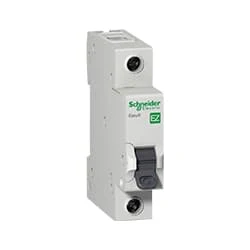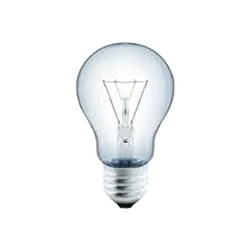Day-Night Sensor in Light wiring:
This diagram shows how to make Day Night Sensor in Light Wiring. In this circuit, we use a light, an SP MCB ( Single Pole Miniature Circuit Breaker ), and a day-night sensor. First, we need to connect the SP MCB ( Single Pole Minature Circuit Breaker ), then connect the day-night sensor, then connect the light. Lastly, we need to connect the neutral connection with the load. Now this circuit is ready for use. If you want to know more about this circuit please check our youtube video below the post.
Diagram of Day-night sensor wiring:
Components Need for this Project:
You can get the components from any of the sites below:
Read Also:
Components used to make the day-night light sensor:
01. SP MCB
 |
| Fig 2: SP MCB |
MCB SP means single pole it protects only one phase switching. MCB (Miniature Circuit Breaker) Curswitch is the most basic general-purpose switch that you use to control a light or another device from one location. These Switches Have Two Brass-Colored Screw Terminals Connected to the hot Power Source Wires. (MCB) For any Distribution Board, the Protection System Must be Used in The Incomer. Phase and Neutral Single Phase Supply to break. 120-volt circuits, 15-20 amp single pole breaker is typically used.
02. Day-night Sensor
 |
| Fig 3: Day-night Sensor |
An Automatic Day Night Light Sensor Switch can Switch on Any Electrical Device Automatically When Dark Falls And Switch off in the Morning Automatically. This Night light With an Energy-Efficient LED (Light Emitting Diode) can be Plugged into the Socket and has a light sensor so that the lamp switches on automatically when it gets dark. This is a Photo Technology-Based automatic sensor switch for 220V AC mains, which can be Widely Used in Street Lights, Factories, Gardens, Shops, Etc., and Other Places for Automatic Lighting. Turns ON the Light in the Dark & Turns OFF in The Light.
03. Light
 |
| Fig 4: Light |
CFLs work in a completely different way from ordinary lamps, they work by using a different process called fluorescence rather than generating light from heat. A typical light bulb wastes 90% of energy and converts only 10% of energy into light, this is where CFL has the biggest advantage. CFL- Curved or conical glass tube filled with argon and a small amount of mercury vapor. The inner wall of the glass is coated with fluorescent material. CFL- It is manufactured using the principle of creating fluorescent light. CFL- Originally white in color but now the construction and use of CFLs producing colored light has become popular.
Thank You for visiting the website. Keep visiting for more Updates.
Frequently Asked Questions
Day/night bulbs and sensors contain an integrated photocell that registers the Power supply brightness of daylight and activates when the level of light reaches the Circuit diagram preset level. When darkness falls, an electrical current begins to flow, and the light automatically currently turns on.
A daylight lamp provides perfect and natural lighting at any time of the power supply day. This is achieved through the type and specification of the bulbs used in daylight lamps (6,000°K color temperature) as they provide a similar level of lighting to natural daylight (6,500°K). The bulb types used are LED and fluorescent.
Light sensors work by the photoelectric effect. Light can behave as a particle, referred to as a photon Circuit Diagram. When a photon hits the metal surface of the light sensor, the energy of the power supply light is absorbed by the electrons, increasing their Project system kinetic energy and allowing them to be emitted from the Circuit diagram material.
Optical sensors are used in other software and applications, like digital cameras, mobile Project system phones, and laptops, to measure ambient light levels. A light sensor is called a photoelectric device and transforms the observed light energy (photons) into electrical Currenttlou energy (electrons).
There are Three settings on a motion and sensor light: sensitivity, timer, and lux. These 3 settings determine how sensitive the Circuit diagram light is to movement, how long the light will stay on after detecting Project system movement, and what level of darkness the light will turn on in.


Post a Comment
Do leave your comments